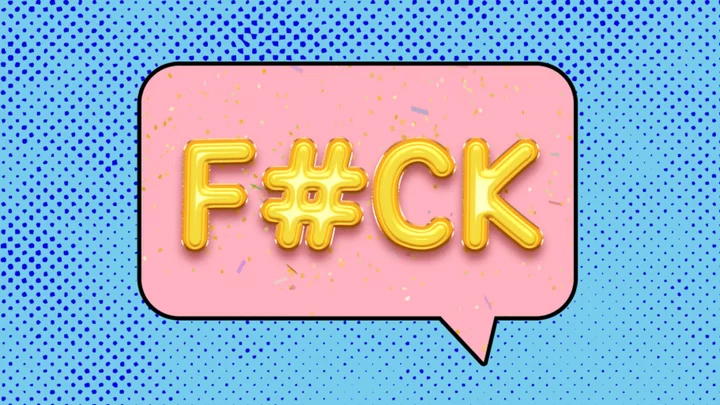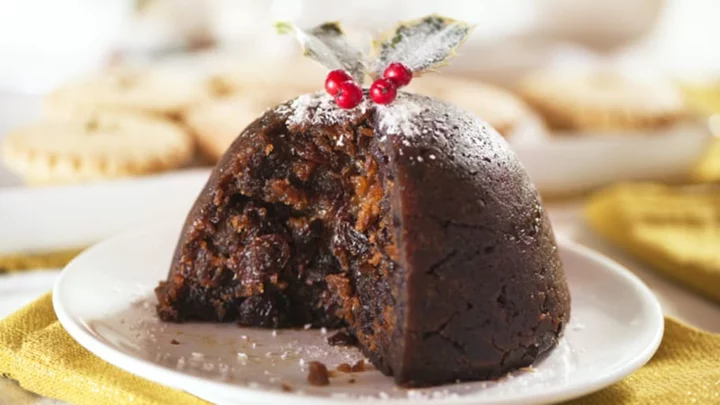The f-word is often thought of as the most useful and flexible word in English. Whether that’s true or not, the term is so successful that it’s spawned dozens of euphemisms—some with a lengthy history in their own right, others that are just enjoying a cup of coffee, etymologically speaking. With apologies to fug, chuff, stuff, fork, frig, foul, fudge, etc., here’s a taste of some of the best freaking f-word replacements for the next time you need to eulogize a loved one or leave a Yelp review.
1. Frak
This is a perfect euphemism, or at least one that perfectly avoids a taboo word while keeping much of its obscene odor. The original 1978 version of Battlestar Galactica for spawned frak, but the term was greatly spread by the 2004 reboot; it debuted at a time when fandom and the internet had developed into something far more impressive than a toaster (which the Cylons were often compared to).
2. Duck
Duck is one of the more prominent f-word euphemisms of the moment, thanks to iPhone’s autocorrect, which seems to assume we love chatting about waterfowl (though Apple is apparently sending duck for f*** the way of the dodo). But this isn’t a new phenomenon; duck has actually been used since the late 1930s as an f-word stand-in. Green’s Dictionary of Slang records an example from Budd Schulberg’s 1947 novel The Harder They Fall that sounds positively autocorrected: “He won’t listen to anybody about training—tells Danny McKeogh to duck himself.”
3. Futz
Words are easy to find, but sometimes even professional dictionary-makers aren’t sure where they came from. So it goes with futz, which has been around since the early 1900s. Its origin is uncertain, but the word may be an alteration of f***. The similarity of f*** around and futz around is hard to resist if you want to make that connection yourself, which is entirely up to you.
4. Eff/Ef/F
Don’t want to say the f-word? Get the eff out of here. Or get the (Latin) ef or F out, as you please. Initializing is a common method of euphemization, and it’s been in play for f*** since at least the mid-‘40s. Ernest Hemingway used the eff version in a 1945 letter, offering timeless advice: “Just tell them to Eff off.” Of course, f stands for f*** in abbreviations and acronyms such as fubar, snafu, MFer, ffs, and the recently popular af (but not when you’re abbreviating the name of this website).
5. Feck
Since at least the 1940s, according to the Oxford English Dictionary (OED), this close relative of the f-word has been prolific, but mainly in Ireland. Green’s has an example from Lee Dunne’s 1965 novel Goodbye to the Hill: “She doesn’t feck about, that one doesn’t.” A recent headline from The Irish Times shows the word still has currency: “‘What the feck are you at?’ I’ve asked myself at times …” The OED also records examples of feck off, fecking, and fecker, so this euph is as versatile as the original.
6. Muck
Like duck, muck is a useful euphemism, because rhyme. The OED’s earliest example is from Miles Tripp’s 1952 novel Faith is a Windsock, which included this exchange: “‘I went on a seven-day drunk.’ ‘Like muck you did.’” You can also see this term pop up in words like futhermucker.
7. Fornicate
It’s not that common, but you can find examples of motherfornicator, go fornicate yourself, and clusterfornication, for euphemizers who aren’t into the whole brevity thing. For those who prefer a euphemism of a euphemism, there’s even clustercoitus.
8. Kaycuff
Since at least 1900, this term has been part of the goofy lexicon of backslang, which is similar to Pig Latin, but not as consistent (sometimes syllables are added to a backwards spelling, and sometimes not). A passage from Robert G. Barrett’s 1992 novel Davo’s Little Something shows backslang’s purpose and method: “They could say things in front of customers and the customers would be none the wiser [...] ‘Dratsab, teenuck, teg kaycuffed,’ etc, etc.”
Kaycuff is derived from f*** by reversing the spelling and adding -ay to the formerly final—but now first—consonant. Carnies employed similar techniques for speaking in code, most famously giving the world the pro wrestling term kayfabe (allegedly “be fake”).
9. Freak
When a word starts with f, ends in a k, and has one syllable, it’s going to take the place of f*** smoothly. Thus, freak has been a top f-word euphemism since at least the 1920s. College slang expert Connie Eble noted the term was particularly popular on campuses in 2001, especially in the expression What the freak!
10. Frick
The similar sounding and equally popular frick has a solid place next to freak in the euphemism cabinet, though it has one interesting sidenote: The first uses were in the form frickface. Frick also may be an alteration of frig.
11. Frap
Issue #4 of the excellent comic book The Santos Sisters features the expression, “What the frap!” That smells like a new euph, but nope—frap has meant f*** since at least the early 20th century, well before it ended up in coffee-related jokes. “After the junior promenade a student is said to be ‘frapped’ if he has been staying up nights to attend the festivities,” one Boston Globe article from 1902 noted. Well, we’ll be frapped.
This article was originally published on www.mentalfloss.com as 11 Successful (and Silly) Euphemisms for the F-Word.









